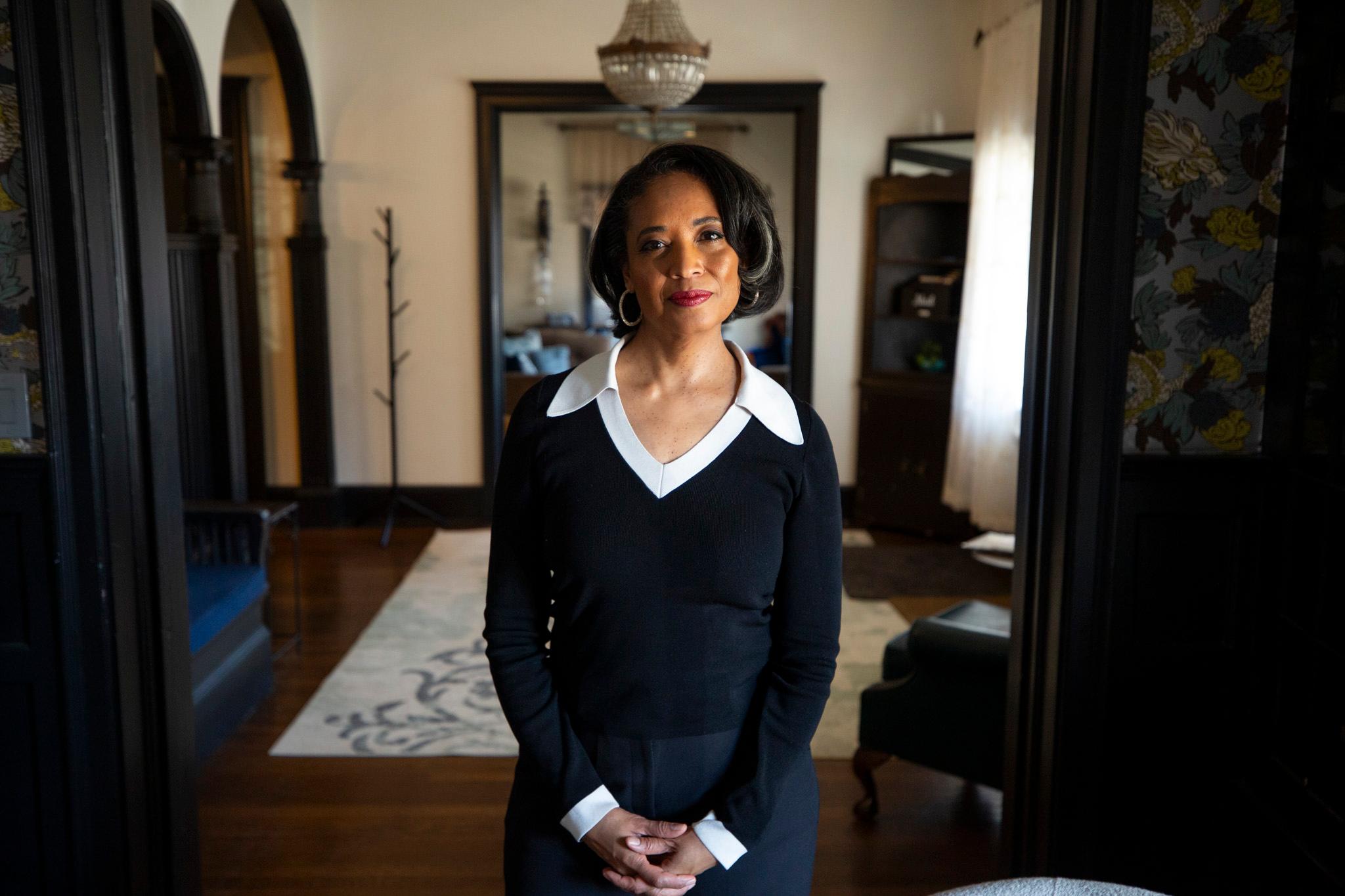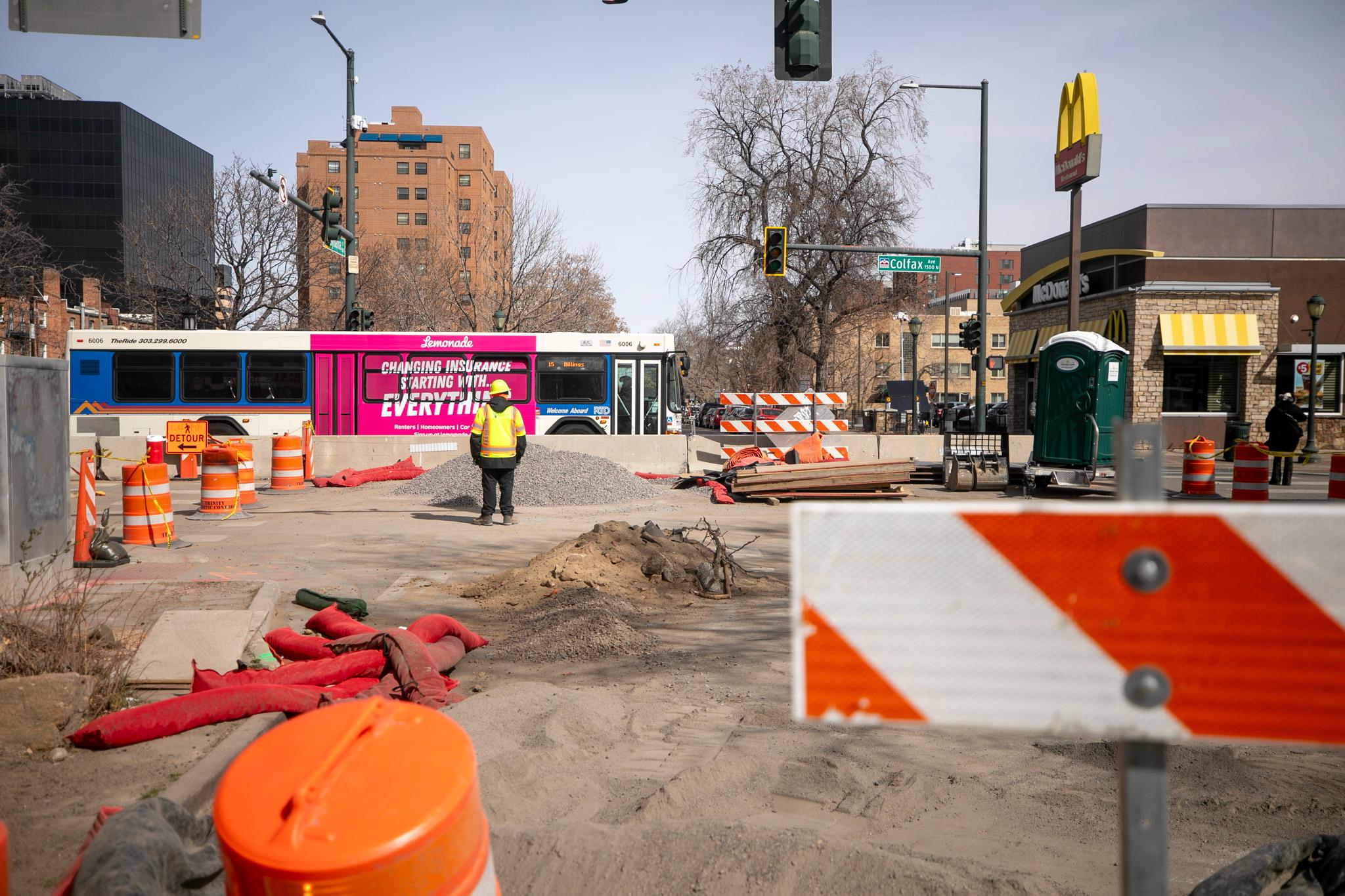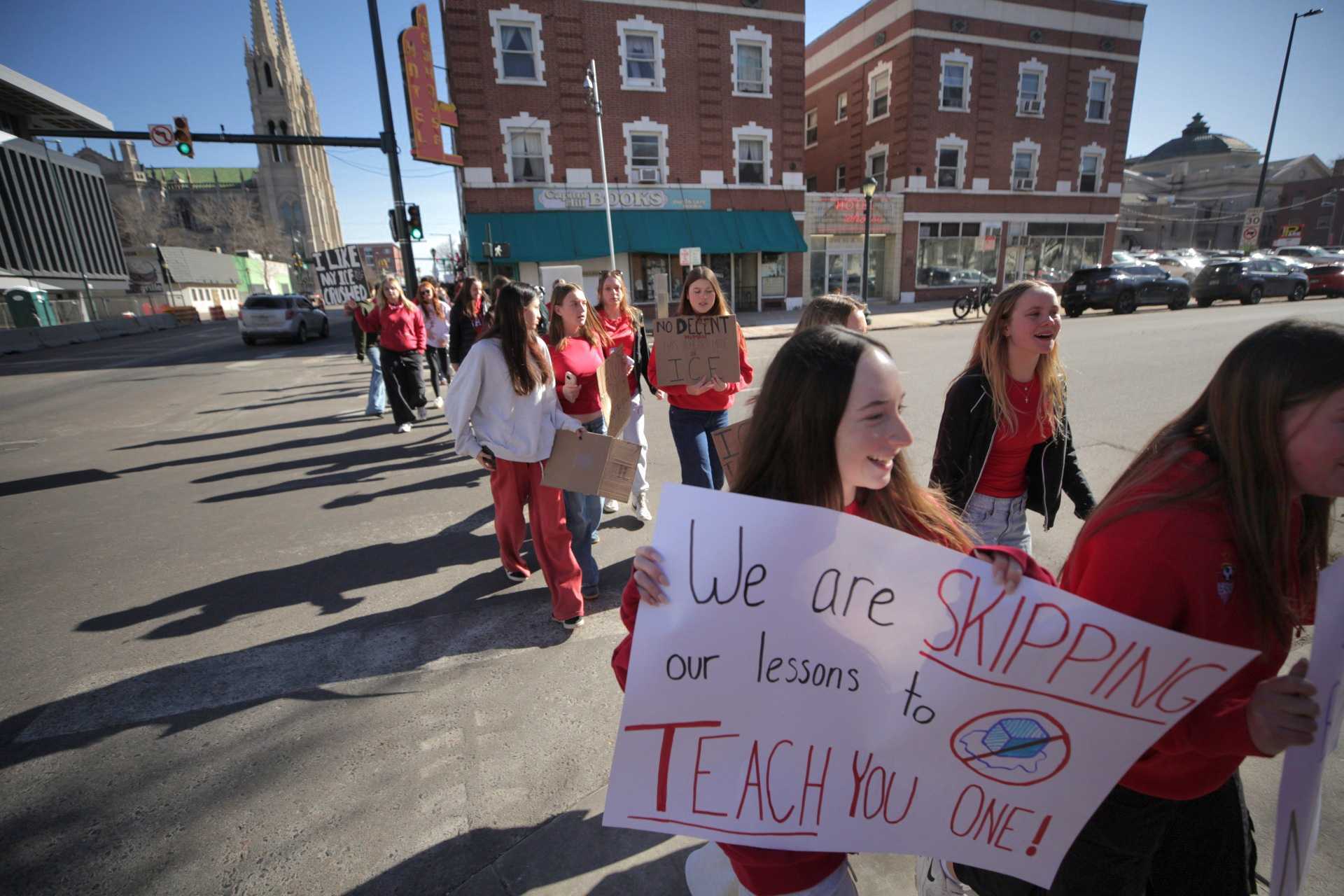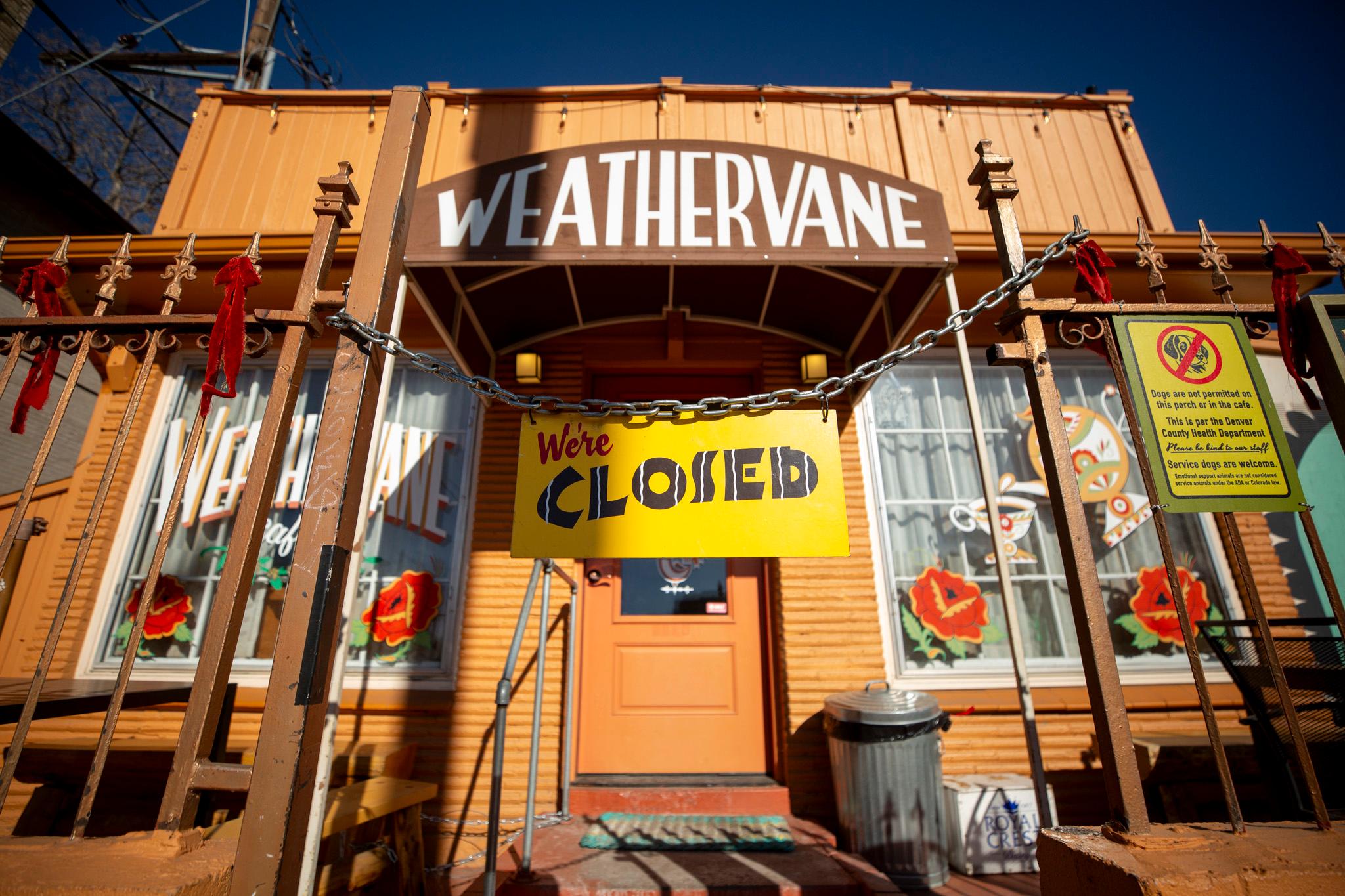A two-hour meeting in Globeville was so tense that one woman left in tears after hearing suspicion and fear of people like her who are experiencing homelessness.
But the residents of the Beloved Community Village -- an alternative to shelters -- and their potential neighbors shared one thing: a sense of being pushed around by the city.
Is that enough common ground on which to build a welcome in Globeville for 11 tiny homes that have to move by March 1?
"I understand why everyone's upset," Sandra Hermans, who lives in one of the tiny homes, said after taking part in the meeting. "No one likes anything forced on them. We feel just as much pushed upon."
More conversations and a tour of the village for residents were discussed. Hermans said she had no prediction for the eventual outcome, "only hope."
"I hope it all works out."
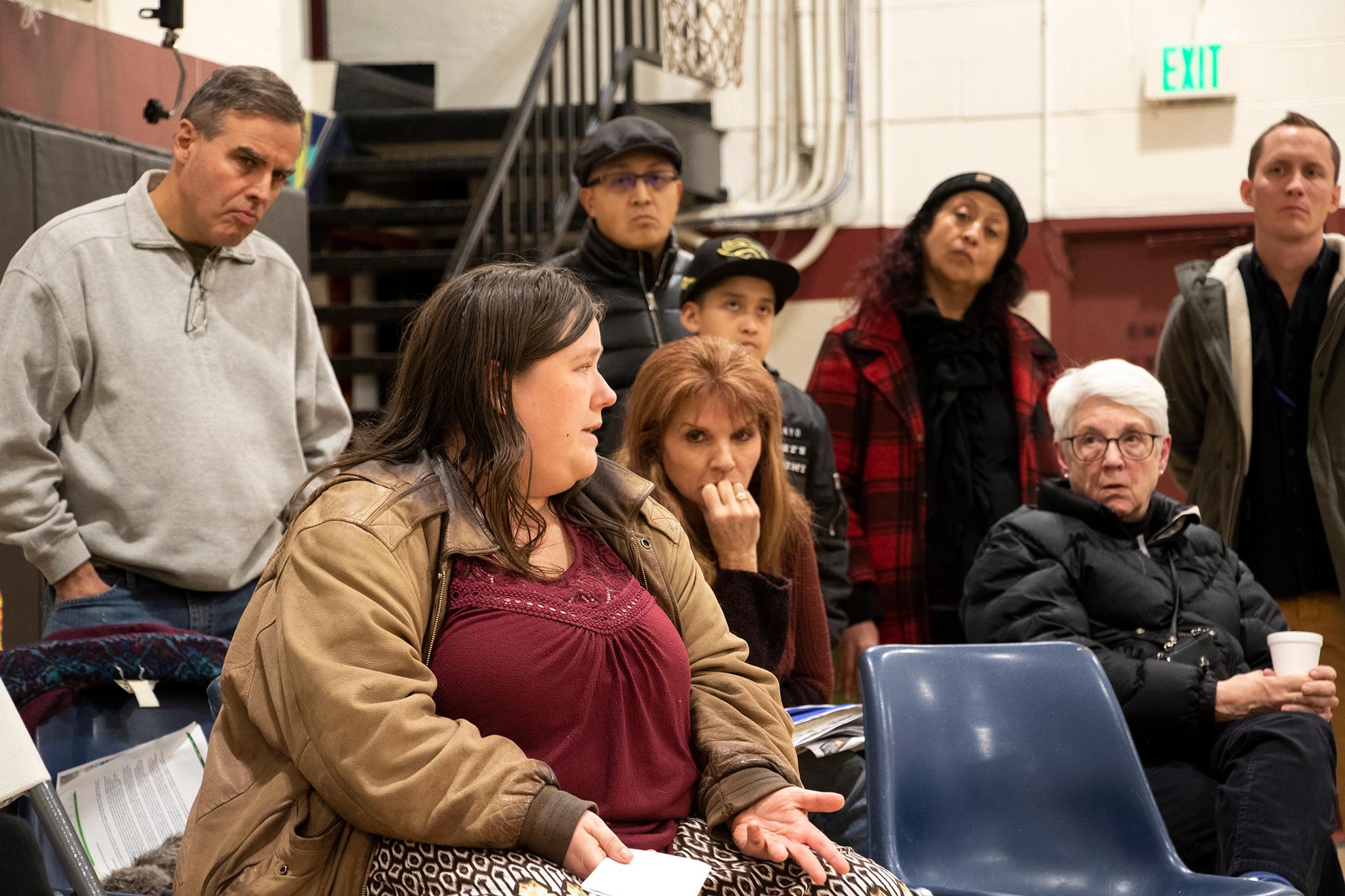
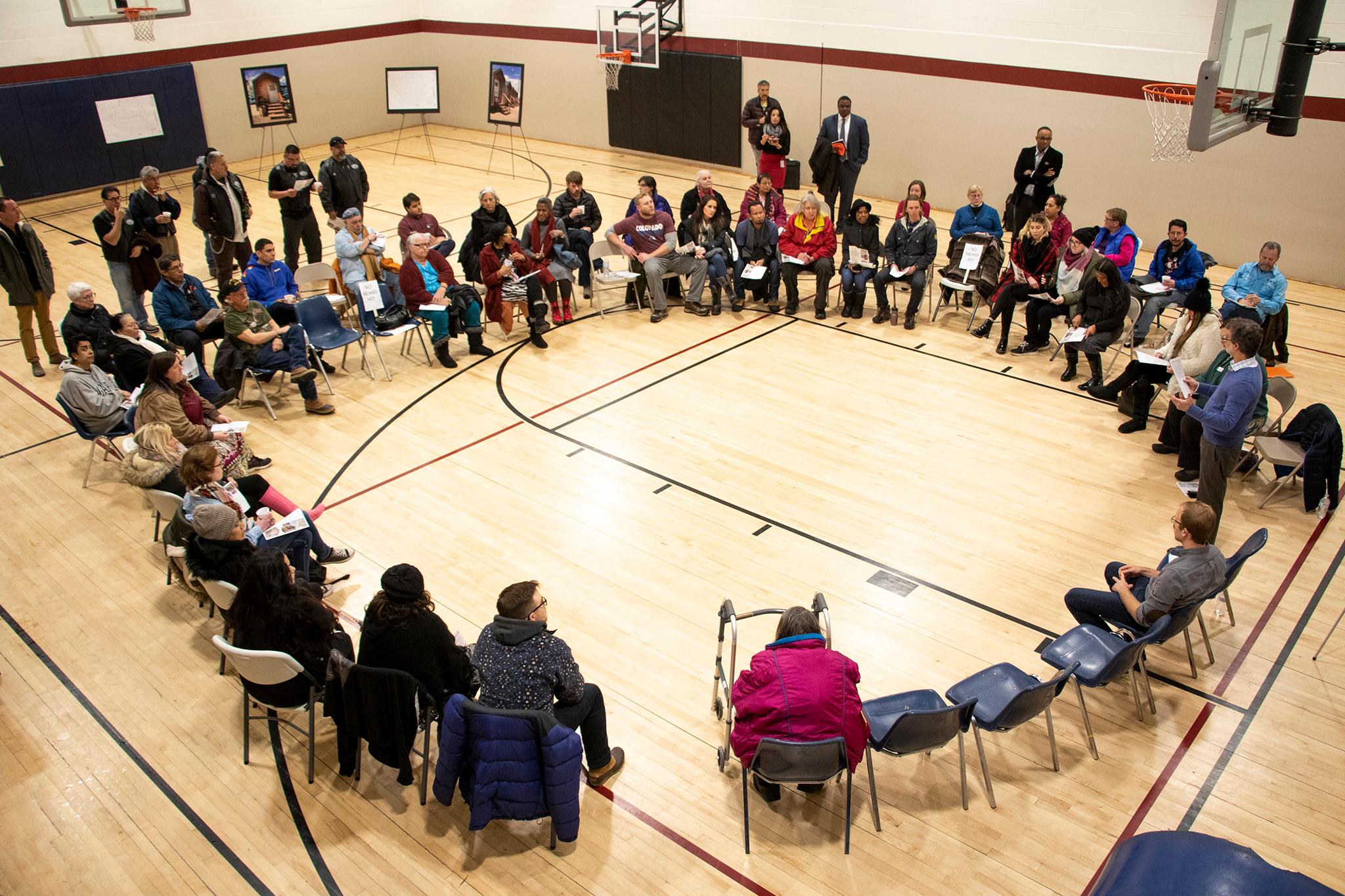
Earlier this week the City Council's Finance and Governance Committee took the preliminary step of approving a proposal to provide Hermans and her fellow villagers a new home by leasing their community's parent organization a vacant lot at 4400 North Pearl Street at a cost of about $10 a year. If approved, the lease would have an initial term of one year, with options to renew for up to four years. A community block with a full kitchen, bathrooms and plumbing would eventually be added -- the current village relies on portable toilets and a bath house supplied with water from a 300-gallon tank. Nine more homes could also be added later.
Thursday's meeting at the Globeville Rec Center organized by city staff and attended by the area's city councilman, Albus Brooks, was a chance for community input before a full City Council vote on Feb. 19.
"I'm getting the feeling here that this is a done deal and we really aren't being treated as a partner," Globeville resident Vernon Hill said to nods from his neighbors during Tuesday's meeting.
Brooks said afterward that he was supportive of the village and hoped follow-up meetings would build trust and yield guidelines for its management.
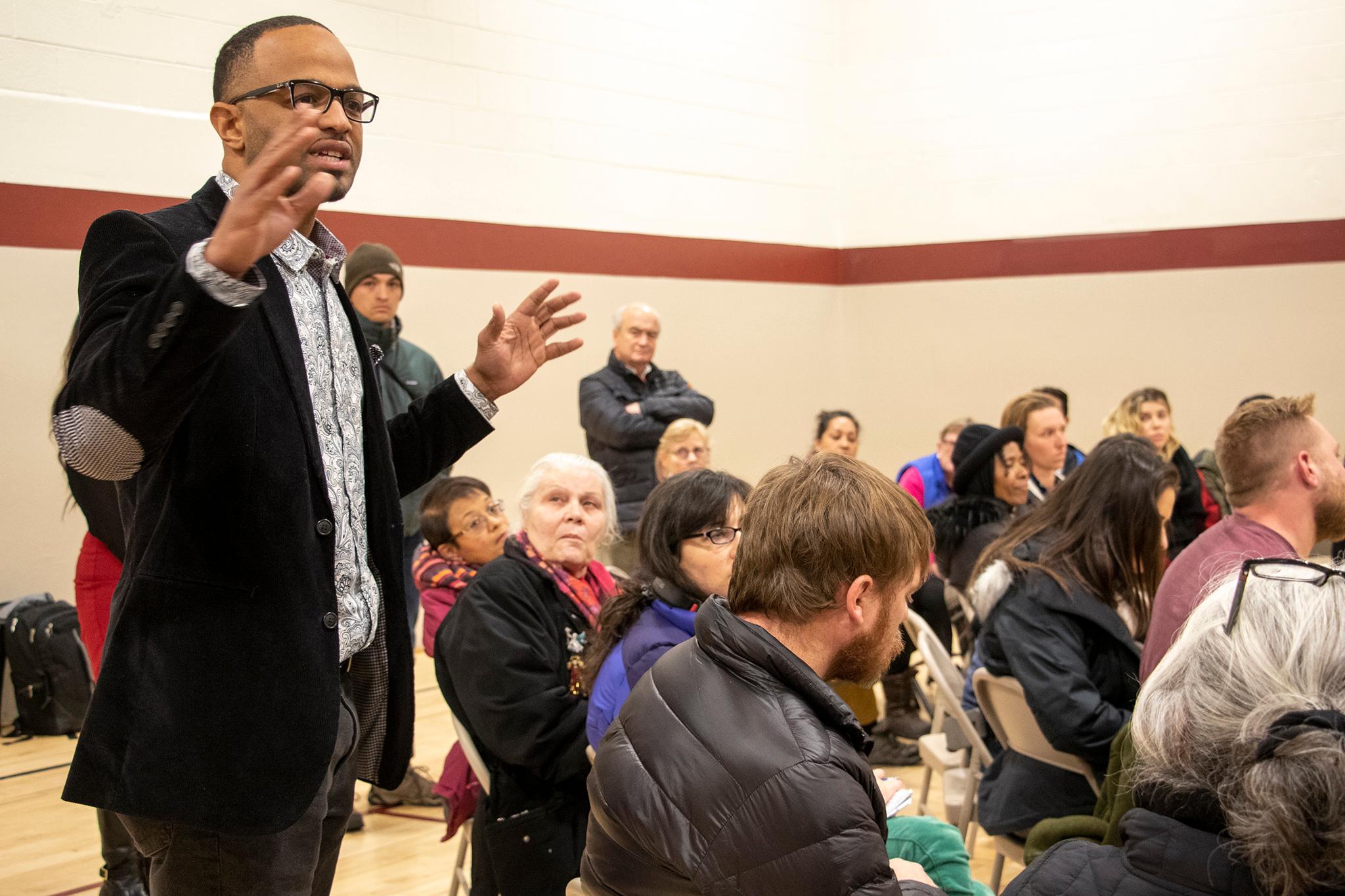
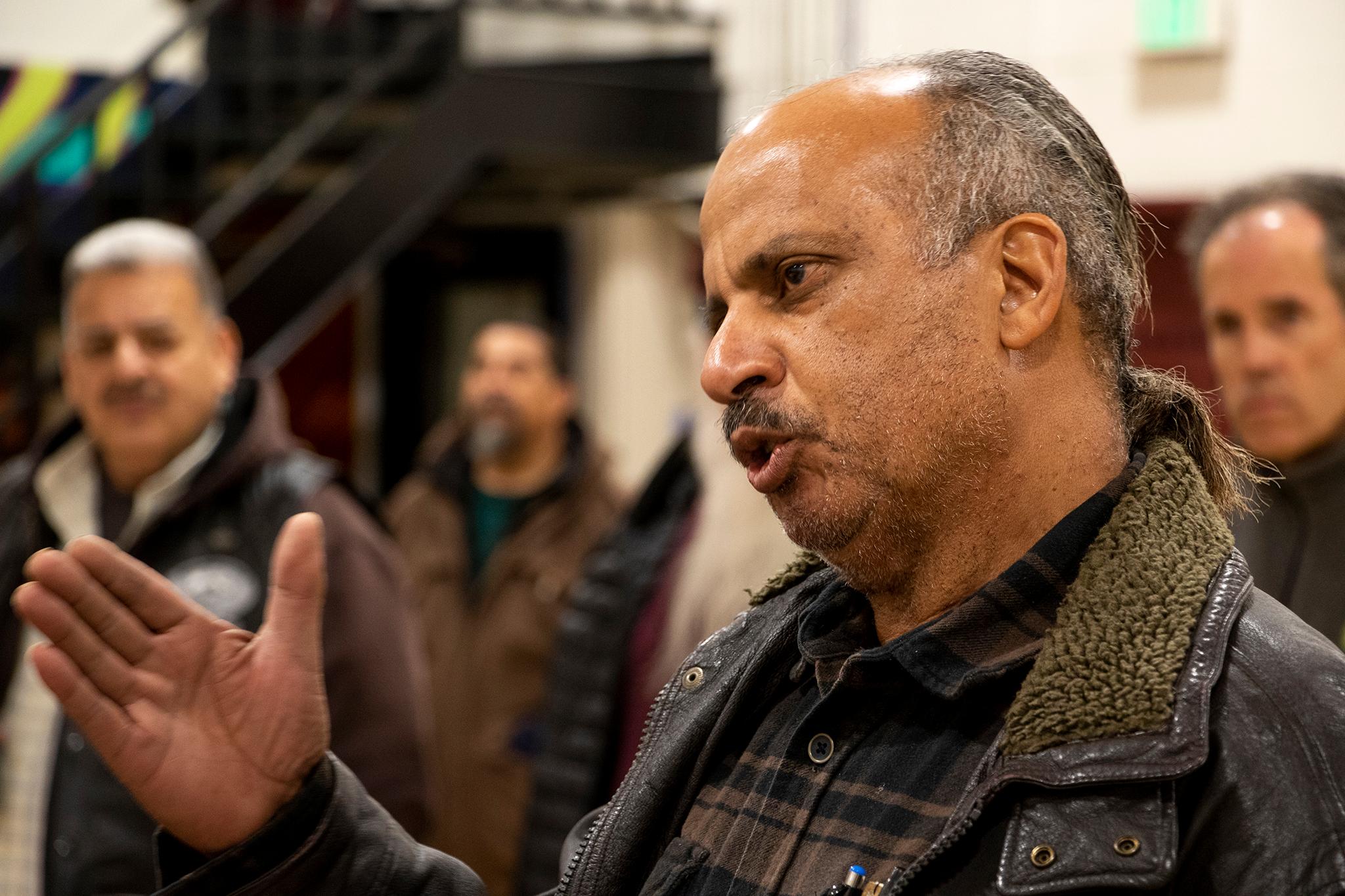
Globeville residents expressed concerns that drug users and felons, including sex offenders, would be among the villagers. Some of the 60 or so people gathered for the meeting held placards that looked like the fans found in churches. Instead of Bible scenes and verses, one side of each placard read, "No to tiny home village in Globeville!" and the other, "No means no!" At one point, members of the crowd were asked to indicate if they wanted Beloved Community Village in the neighborhood. No hands were raised.
After a short presentation by a representative of the mayor and by the interim executive director of Community Planning and Development, one of the first questions from Globeville residents concerned whether something had gone wrong to force the village to move from its current site near the 38th and Blake light-rail station.
"Was there an incident that happened? What's going on there?" asked Aaron Pursley, who also wanted to know if crime was associated with the village.
Evan Dreyer, the mayor's deputy chief of staff, explained that the current site had always been temporary because it is slated for an affordable housing development. The Colorado Village Collaborative and other organizers of Beloved Community had been working on a plan to move to a plot offered at the Taxi development. In November, Denver's public works department said the Taxi plot was inappropriate, citing flood concerns.
Cole Chandler, a Colorado Village Collaborative organizer, noted at Tuesday's meeting that a University of Denver study had determined crime rates had not increased significantly within a half mile of the 38th and Blake site and gone down with a quarter mile. He said that in 18 months two villagers had been expelled for breaking community rules, while four had moved into permanent housing. Twelve people, 11 of them working or in school, are living at the village.
Village residents can be kicked out for violence, possessing weapons or drugs, discriminating against others, being persistently disruptive or failing to participate in the communal governance structure. The village is visited regularly by a laundry truck which, along with other support services such as connections to job and health programs, would be offered to the surrounding community if the village moves to 4400 North Pearl.
Chandler said village residents have not been subject to background checks.
"Our goal has been not to screen people out of housing, but to screen them in," he said, but added that background checks along with a ban on sex offenders was a step that could be considered.
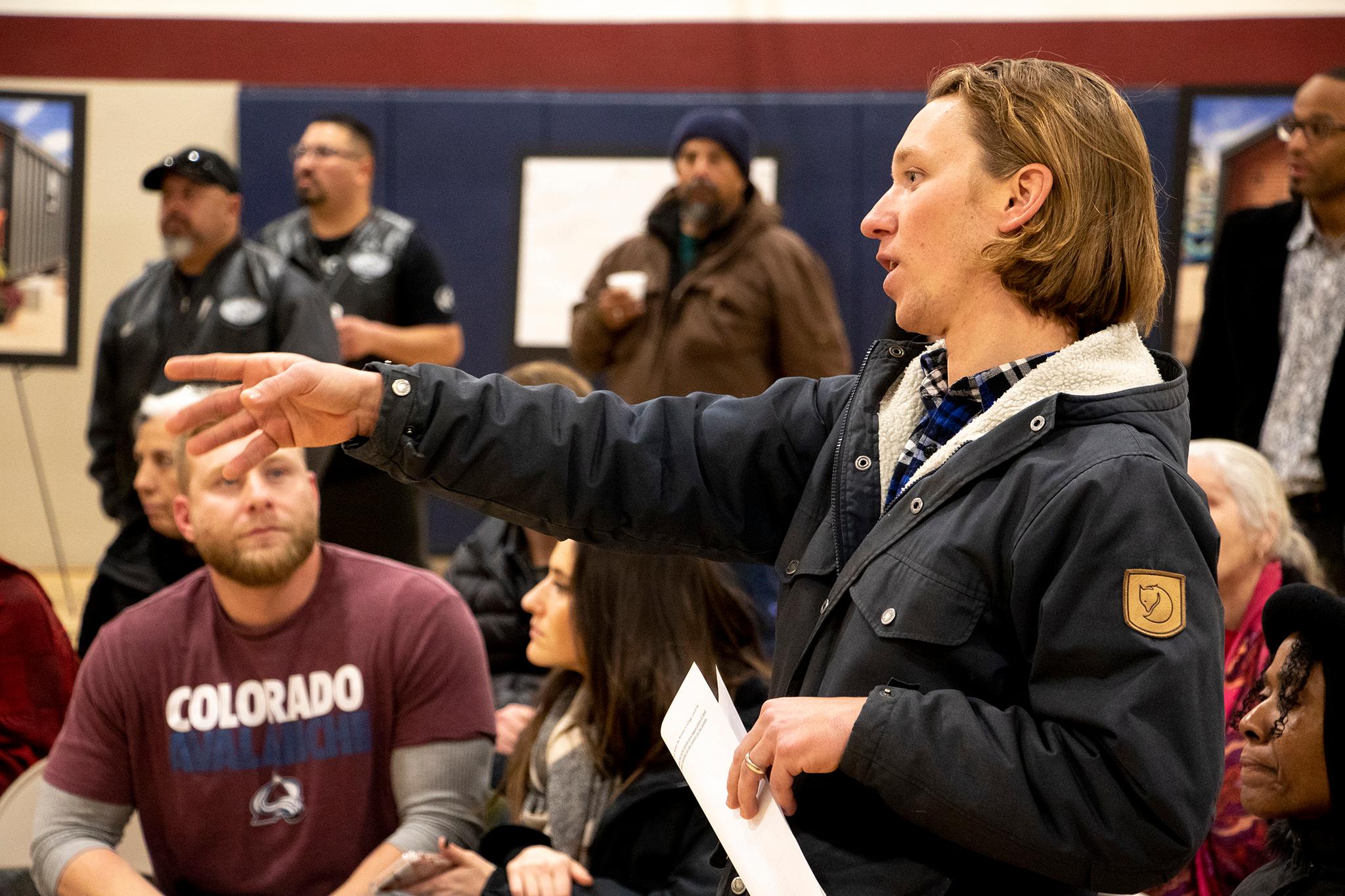
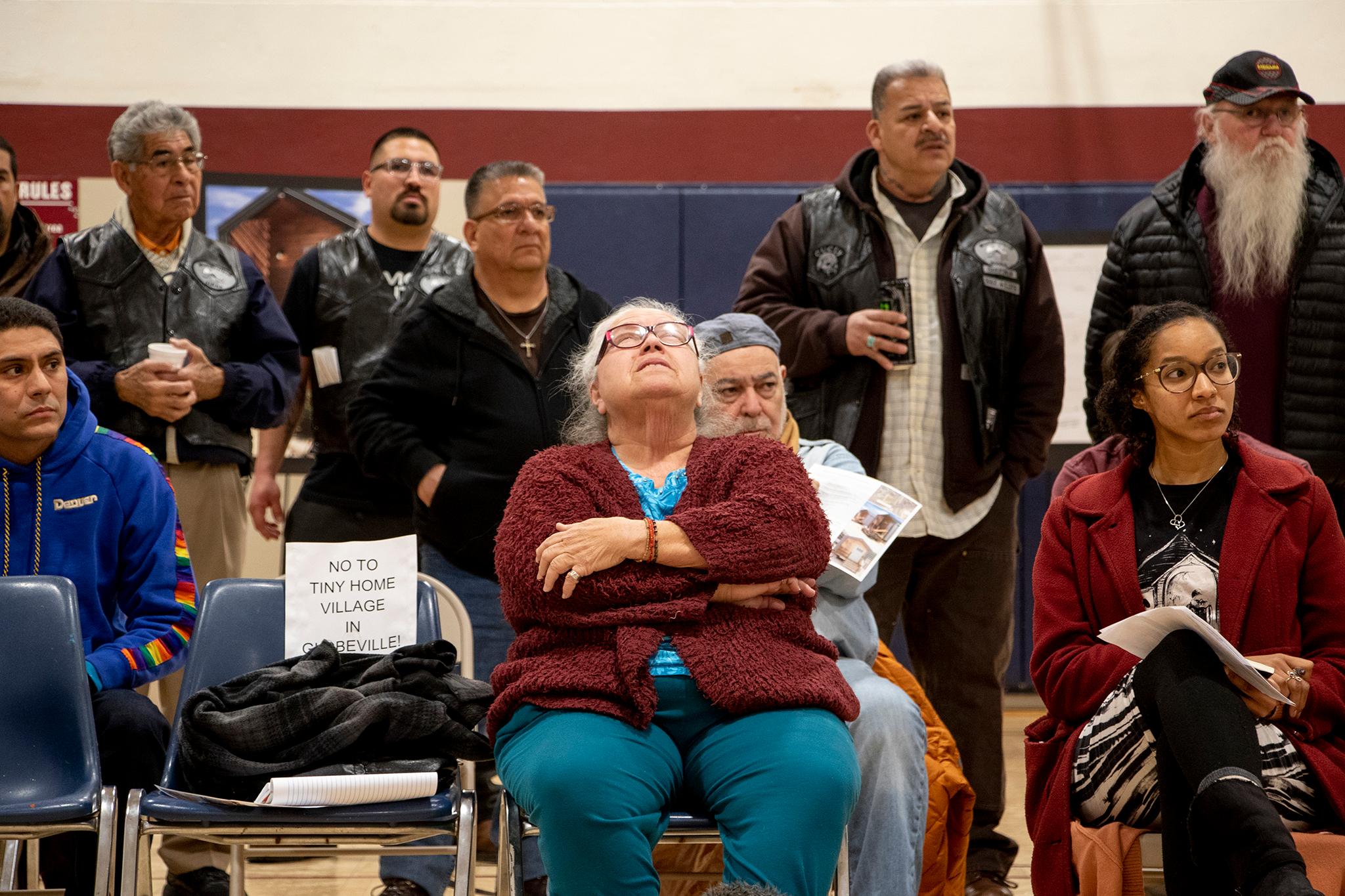
Crystal Trujillo, a mother of four who said her family has lived in the neighborhood for 30 years, said: "I need to know that my children are safe."
Nonetheless, she said "I'm not saying don't help people. They deserve a chance to not live on the streets."
Others expressed concern that a long-neglected part of Denver was being asked to host what lifelong Globeville resident David Oletski described as a "glorified homeless camp." And there was impatience with the philosophy of the village.
"I pulled myself up," said Toni Riley, a Globeville resident who said she had struggled in her own life. "There was nobody to give me a little house. You pull yourself up."
A half hour into the meeting, Luna Ranie, one of four villagers present, referred to the tone of many comments.
"I'm hearing that we're being looked down on," she said. "We're not animals."
Raine left in tears.
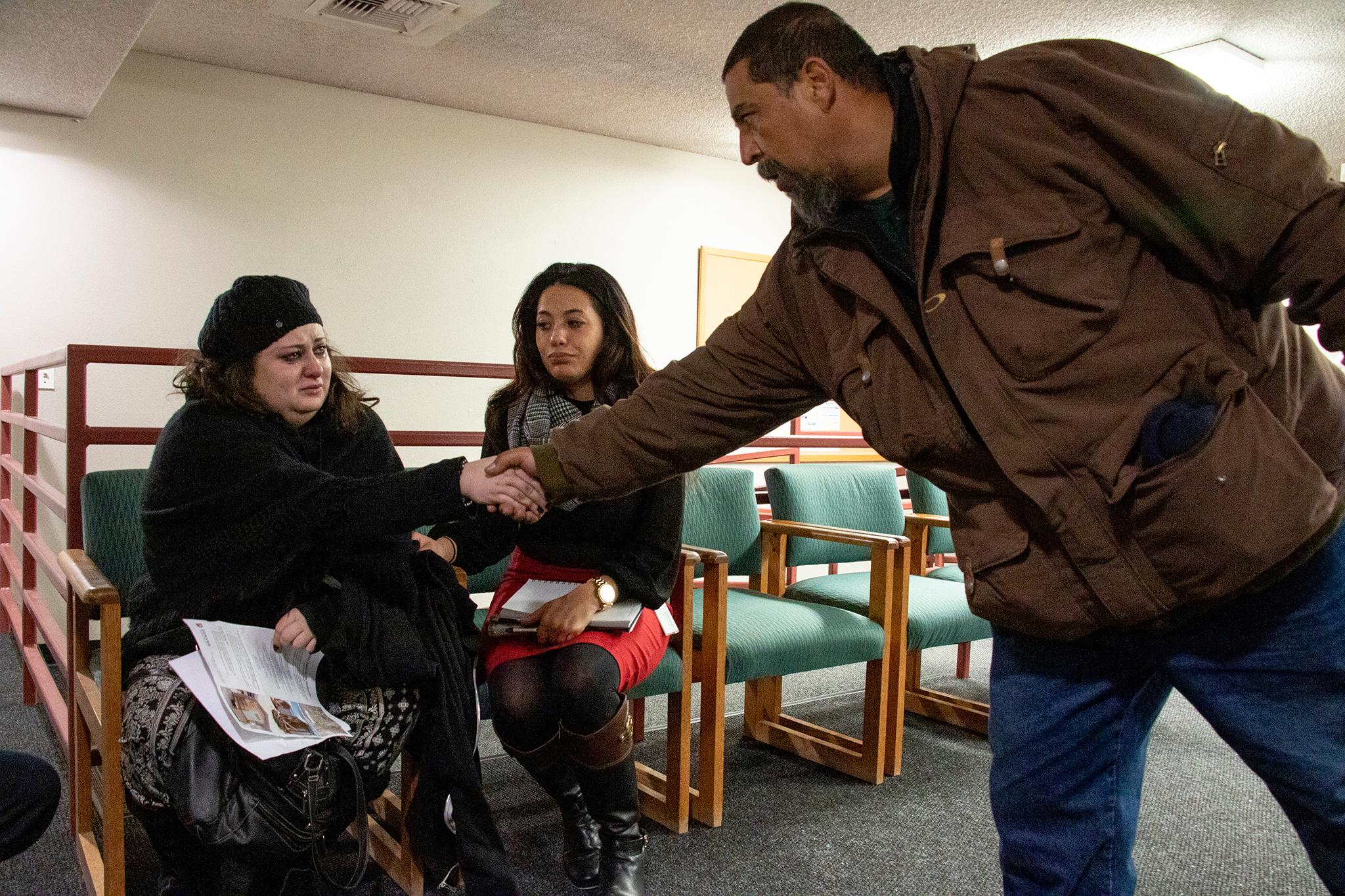
At the end of the meeting, Globeville resident Antonia Montoya expressed regret that the villagers felt attacked.
"This meeting had nothing to do with them personally," she said. "If their feelings got hurt, it had nothing to do with them."


